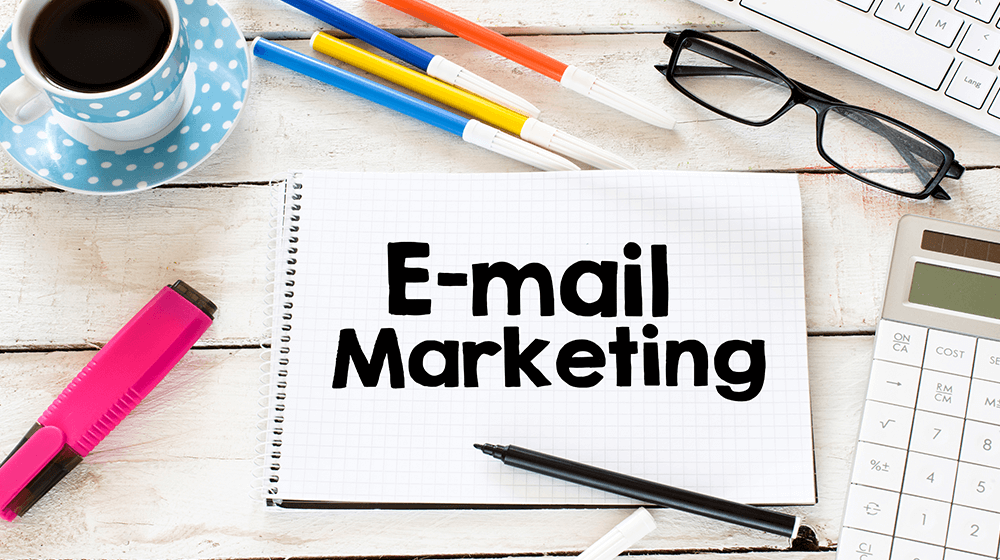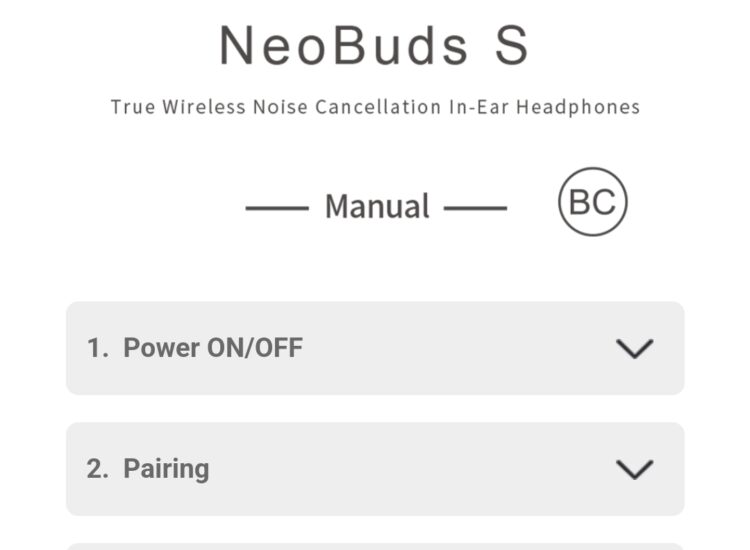In a dynamic social media landscape buzzing with trends, email marketing stands out as a robust platform for direct, personalized customer engagement. Far from fading, it thrives. This article dispels misconceptions about the relevance of email marketing, highlighting its vital role for small business owners and digital marketers.
Toc
- 1. Why Email Marketing Still Reigns Supreme
- 1.1. Unmatched ROI (Return On Investment) Potential
- 1.2. Direct Communication Channel with Target Audience
- 1.3. Segmentation and Personalization Options
- 1.4. Cost-Effective Solution
- 1.5. Measurable Results through Analytics
- 1.6. Automated and Timely Communication
- 1.7. Personalization and Customization
- 1.8. Integration with Other Marketing Strategies
- 2. Overcoming Common Email Marketing Challenges
- 3. Unveiling the Benefits of Marketing Email Services
- 4. Related articles 01:
- 5. Choosing the Right Marketing Email Service for Your Business
- 6. Related articles 02:
Why Email Marketing Still Reigns Supreme

Unmatched ROI (Return On Investment) Potential
Email marketing boasts an impressive ROI, often cited as $42 for every $1 spent. This staggering potential makes it indispensable for businesses looking to optimize their marketing budget while achieving measurable sales outcomes. This is especially valuable for small business owners, who often have limited funds to allocate towards marketing efforts.
Direct Communication Channel with Target Audience
Emails ensure a direct line to your audience’s inboxes, offering a unique opportunity to deliver tailored messages without the noise of competing adverts and social media updates. With email marketing, you can personalize your communication and build stronger relationships with your customers. This personal touch is essential in establishing trust and brand loyalty.
Segmentation and Personalization Options
Email marketing allows for advanced segmentation and personalization options, giving businesses the ability to target specific groups within their audience based on demographics, behaviors, or past interactions. By delivering highly relevant content to each segment, businesses can increase the chances of conversion and enhance customer satisfaction.
Cost-Effective Solution
Compared to other forms of marketing, email marketing is a cost-effective solution that delivers significant results. With minimal production expenses and the ability to reach a large audience at once, it’s an ideal option for small businesses with limited budgets. Plus, with the availability of free email marketing platforms and affordable paid options, it’s a cost-effective option for businesses of all sizes.
Measurable Results through Analytics
One of the greatest advantages of email marketing is its ability to provide measurable results through analytics. With the use of tracking tools, businesses can easily monitor their email campaign’s performance and make data-driven decisions to improve future campaigns. This allows for continuous optimization and the ability to track ROI, making email marketing a valuable tool for businesses looking to measure their success.
Automated and Timely Communication
Email marketing also allows for automated and timely communication with customers. Through the use of scheduled emails and triggered messages based on specific actions or events, businesses can stay connected with their audience at all times. This not only saves time but also ensures that customers receive relevant information in a timely manner, increasing the chances of engagement and conversion.
Personalization and Customization
With email marketing, businesses have the ability to personalize and customize their messages for each recipient. This creates a more personalized experience for customers, making them feel valued and increasing their loyalty towards the brand. By utilizing customer data and segmentation strategies, businesses can send targeted and relevant content, leading to higher open and click-through rates.
Integration with Other Marketing Strategies
Email marketing can also be integrated with other marketing strategies to create a cohesive and effective campaign. For example, businesses can use email marketing to drive traffic to their website or social media pages, or include special offers or promotions in their emails to encourage purchases. Email marketing can also be used in conjunction with content marketing, influencer marketing, and other digital marketing methods to amplify their reach and impact.
Overcoming Common Email Marketing Challenges
Crafting Compelling Subject Lines and Content
The battle begins at the inbox, making it crucial to craft subject lines that entice recipients to open your emails. Alongside a catchy opener, producing relevant and valuable content is key to engaging your readers. Businesses should focus on creating content that is informative, entertaining or solves a problem for the reader.
Deliverability and Spam Filters
One of the biggest challenges with email marketing is ensuring that your emails actually reach the recipient’s inbox. With spam filters becoming increasingly sophisticated, it is important for businesses to follow email best practices such as regularly cleaning their email list, avoiding trigger words and implementing double opt-in processes.
Measuring and Tracking Success
Another challenge with email marketing is measuring its success and tracking its impact. Businesses should regularly track and analyze their email metrics such as open rates, click-through rates, and conversion rates to understand the effectiveness of their campaigns. This data can then be used to make improvements and optimize future email campaigns.
Building and Managing Targeted Email Lists
A segmented email list allows for targeted and effective marketing efforts. Building and nurturing your subscriber list fosters a community of interested customers and prospects.
Ensuring Email Deliverability and Avoiding Spam Filters
To reach your audience, you must circumnavigate spam filters and ensure high deliverability. This can be achieved through best email practices and constant optimization of your email content.
Unveiling the Benefits of Marketing Email Services

Streamlined Campaign Management and Automation
User-Friendly Platforms for Designing Engaging Emails
Marketing email services offer intuitive platforms where users can create visually appealing and engaging email templates without needing advanced technical skills. These templates can be easily customized and tailored to specific marketing goals.
Automated Workflows for Scheduling and Sending Emails
By utilizing automation tools, you have the capability to strategically schedule emails to align with the specific behaviors and preferences of your target audience. This practice guarantees that your communication is not only timely but also highly relevant to their needs, ultimately enhancing the effectiveness of your messaging strategy.
Built-in Analytics and Reporting Tools for Tracking Performance
These analytical tools provide valuable insights into the performance of your marketing campaigns, helping you analyze key metrics and trends. By leveraging these tools effectively, you can optimize your strategies, refine your approach, and ultimately achieve more impactful results.
Enhanced Audience Engagement and Personalization
Segmentation Capabilities to Target Specific Audiences
Email services offer advanced segmentation features that allow you to finely tune your campaigns to connect with various audience segments. This customization ensures that your interactions are more personalized, leading to deeper engagement and better results.
Personalization Features for Tailored Content and Offers
Personalization in marketing emails has come a long way from just using “Dear |FIRSTNAME|.” Nowadays, email services offer sophisticated personalization options that allow for tailoring messages to individual recipients based on their preferences, behavior, and demographics. This level of customization not only captures attention but also ensures that the content resonates with the recipient, enhancing engagement and ultimately driving better results for email marketing campaigns.
A/B Testing for Optimizing Subject Lines and Email Design
A/B testing, a popular technique in marketing, empowers marketers to meticulously analyze and pinpoint the most compelling elements within their campaigns. By systematically testing variations, marketers can refine their strategies and iterate towards perfection, ensuring optimal effectiveness and engagement with their target audience.
Choosing the Right Marketing Email Service for Your Business

Key Features to Consider When Selecting an Email Service Provider
Ease of Use and Interface Design
An intuitive interface is critical for time-pressed marketers who need to create campaigns quickly and efficiently. Choose a service that offers a user-friendly interface with drag-and-drop tools, customizable templates, and other features that streamline the email creation process.
Pricing Plans and Scalability for Growing Businesses
Cost-effectiveness combined with the ability to scale up as your business grows is essential when choosing a service. Look for providers that offer affordable pricing plans with the option to upgrade as your email list and marketing campaigns expand.
Integration Capabilities with Existing Marketing Tools
The best marketing email service should complement and integrate seamlessly with other tools in your marketing suite. This allows for streamlined data management and enhanced reporting capabilities, resulting in a more holistic view of your marketing efforts.
Comparing Popular Marketing Email Services 2024
Selecting the best email marketing service can greatly influence the success of your business’s email marketing efforts. Explore five top choices for 2024, outlining their advantages, disadvantages, and key attributes to assist you in making a well-informed choice.
1. Mailchimp
Advantages:
- Features a user-friendly interface, making it well-suited for beginners.
- Offers a free plan catering to basic requirements (up to 2,000 subscribers).
- Provides a wide array of email templates and design tools.
- Seamlessly integrates with diverse marketing and CRM platforms.
Disadvantages:
- The free and basic plans have limited automation capabilities.
- Pricing for advanced features is higher compared to certain competitors.
- Offers limited customization options for intricate email designs.
2. Constant Contact
Advantages:
- Strong emphasis on deliverability and spam filter avoidance.
- User-friendly drag-and-drop email editor.
- Inclusion of marketing automation tools in paid plans.
- Extensive reporting and analytics for monitoring campaign performance.
Disadvantages:
- Limited features in the free plan (restricted to 200 contacts).
- Interface complexity may be overwhelming for certain users.
- Limited capabilities for creating landing pages compared to competitors.
3. ActiveCampaign
Advantages:
- Robust automation features for intricate email workflows.
- Advanced segmentation for precise campaign targeting.
- Integration with CRM and marketing automation platforms.
- In-built landing page creator and marketing automation tools.
Disadvantages:
- Steeper learning curve than simpler platforms like Mailchimp.
- Higher pricing for larger teams or complex automation requirements.
- Shorter free trial duration (only 14 days).
4. Klaviyo
Advantages:
- Focus on e-commerce marketing, including features like abandoned cart emails.
- Strong customer segmentation based on purchase behavior.
- Seamless integration with major e-commerce platforms such as Shopify.
- Advanced reporting and analytics for insights into customer behavior.
Disadvantages:
- Pricing based on contact numbers and email sends, potentially costly for high-volume campaigns.
- Higher learning curve for users new to e-commerce marketing automation.
- Limited free plan features (up to 250 contacts and 500 emails per month).
5. SendGrid
Advantages:
- Reputation for email deliverability and advanced technical capabilities.
- Scalable platform for large-scale email dispatches.
- Robust API for custom application integration.
- Free plan offered for sending up to 40,000 emails monthly (with restrictions).
Disadvantages:
- Interface less intuitive compared to some competitors, focusing more on technical aspects.
- Limited design options and email templates for beginners.
- Free plan limitations may not suit most businesses.
Choosing the Right Service:
When deciding, consider these factors:
- Budget: Compare prices and features to match a service with your budget and email requirements.
- Technical Proficiency: Assess your team’s familiarity with email marketing platforms.
- Required Features: Prioritize automation, segmentation, or e-commerce integrations based on your marketing objectives.
Additional Recommendations:
- Most providers offer free trials for testing before commitment.
- Look for suitable customer support options.
- Evaluate integrations with your current marketing and CRM tools for a cohesive workflow.
By thoroughly evaluating these leading options and aligning their strengths with your unique needs, you can select the email marketing service that propels your business towards achieving its goals in 2024. Remember, there isn’t a one-size-fits-all solution, so emphasize features and user experience to find your ideal match.
Conclusion
Email marketing is a dynamic and ever-evolving strategy that constantly adjusts to the needs of an always-connected audience. By leveraging powerful email marketing services, you can not only elevate your communications but also forge deeper connections with your audience, ultimately leading to a significant boost in your bottom line. For small business owners and digital marketers who are dedicated to maintaining a competitive edge in the market, there has never been a better time to refine and enhance your email strategy. Witness the transformative power of these changes firsthand – gain access to our comprehensive and insightful guide for expert tips, or take advantage of a free trial to experience firsthand the profound impact of implementing an effective email marketing approach.
















